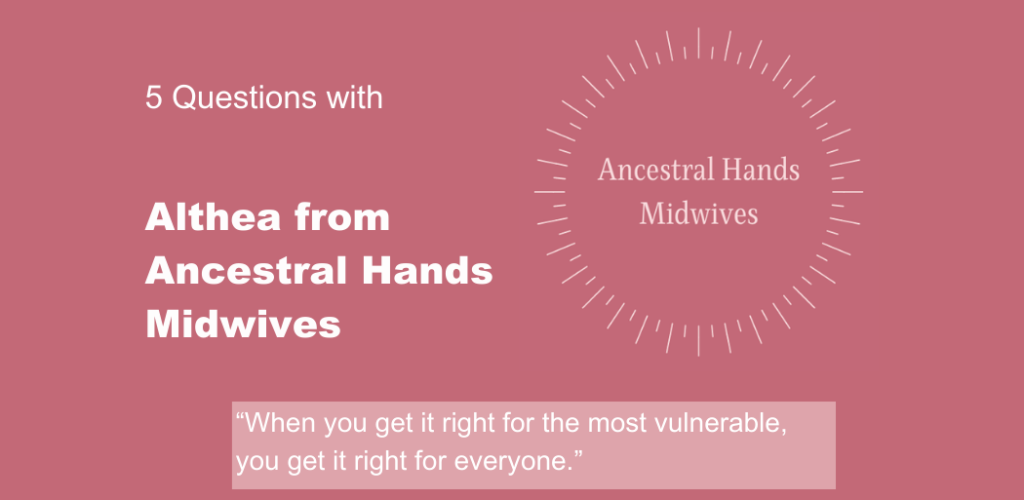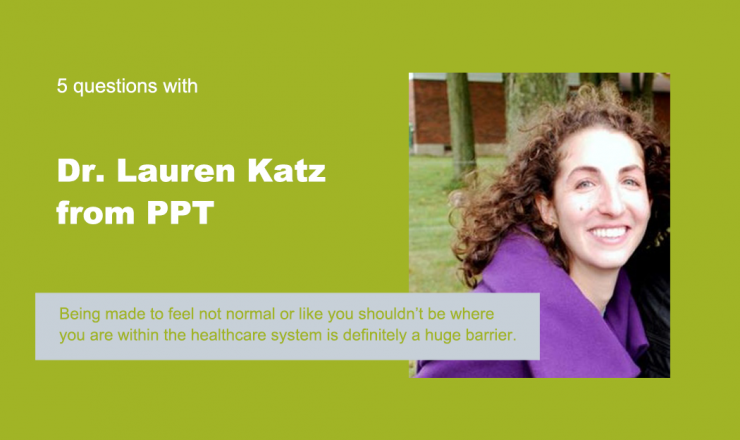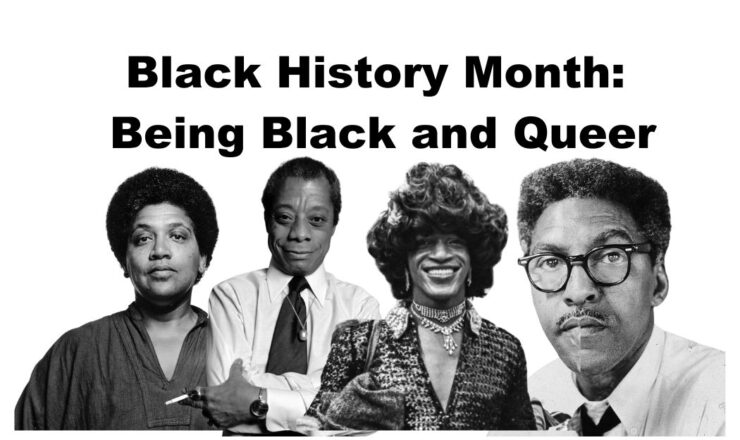

5 Questions is where Teen Health Source volunteers ask 5 questions to people about their unique perspectives on everything to do with sex, gender, and reproductive health. In this instalment we interview Althea from Ancestral Hands Midwives. Ancestral Hands Midwives is a Black midwife-led organization serving the Black community by informing and empowering clients during the prenatal, birth, and postpartum periods.
Check out their website for more info: ancestralhands.ca
Ancestral Hands Midwives is a perinatal program focused on serving the Black community in Toronto. We offer prenatal and postpartum education, advocacy support and connection to community services. We recently launched our clinical program and are excited to offer prenatal and postpartum midwifery care to clients. With our new program design we can offer care to high risk clients, who normally wouldn’t qualify for midwifery care and low risk clients who were unable to access midwifery care. Research has shown that midwifery care improves outcomes and we want to increase access to that care for the Black community which has under utilized midwifery care in Ontario.
Unfortunately due to the lack of race based data collection in Canada, it’s difficult to answer this question with statistics. However, through the limited research available, focus group findings and what I’ve observed during clinical practice, health disparities are seen between Black people and their non Black counterparts. Canadian research has found that Black patients experience higher rates of preterm birth and preeclampsia. In Canada, Black women/people are overrepresented in the national rates for most significant chronic illnesses such as diabetes, cancer, cardiovascular, HIV/AIDS, lupus and hypertension. This is significant because this makes Black patients disproportionately ineligible for midwifery care. American statistics show that Black women/people are three times more likely to die during the perinatal period than other races and Black babies are also more likely to have poor outcomes such as an increased incidence of newborn death. Although the data is limited, whenever it’s available, the health status of Black people is poorer than their white counterparts.
Focus groups found that Black patients felt their race negatively affected their maternity care. Although there were occurrences of overt racism amongst focus group participants, racism mainly took the form of not being listened to, not being given the full range of options that other patients get, disrespectful comments based on stereotypes and a lack of access to culturally competent care. Black patients face systemic racism, discrimination and are often negatively impacted by the social determinants of health. As a result of all of these factors, Black patients have poorer outcomes and experiences than their non Black counterparts.
When you get it right for the most vulnerable, you get it right for everyone. By that I mean, although our work is focused on the Black community, the wins and the learning that comes out of this program can be applied to the wider perinatal community. The work we’re doing at AHM doesn’t just stay within our clinic walls. Our goal is to share what we’ve learned to improve perinatal care and experiences not just for Black birthing people, but for everyone on their perinatal journey. A lot of the barriers we’re trying to address exist beyond Black birthing people and as we find better ways to serve our community we’re finding ways to better serve everyone. This definitely applies to pregnant teens as they are a vulnerable subset of the perinatal population who can benefit from improved care pathways.
My advice to expecting Black parents who are accessing perinatal care is to know your options, do your research, learn how to advocate for yourself and build your team of support. Ignorance is not bliss for Black pregnant people and in fact, it could lead to death. Black people typically do not have the privilege of just showing up and getting high quality care. They need to come to healthcare appointments prepared, having already researched and knowing their options. They should be active participants in their healthcare, ask questions, ask for additional resources and make informed decisions. Advocacy is essential, Black parents must be prepared to advocate for themself and their baby. Finally, expecting parents should understand that they can build a whole team of support. Their care can and should extend far beyond their midwife or OB. Their team can include other supports like a doula, pelvic floor physiotherapist, childbirth educator and their chosen birth team. Although there are parts of the process that are beyond their control, it’s important to prepare as much as you can and access as much wrap-around support as possible.
The intersectionality of pregnancy for Black teens is something we’re aware of at AHM. The potential for additional layers of discrimination and medical bullying that teen parents may face is very serious. The need for education, resources, support and advocacy are crucial for pregnant teens. Although our program will have the focus of access, education and empowerment for all of our clients, we look forward to developing resources specific to the teens we serve.
If you have questions about this topic, feel free to contact one of our peer educators. [Link]
Last Updated: March 2024

We sat down with Lauren, a family physician at Planned Parenthood Toronto. Want to learn more about what it takes to be a clinician at PPT, and what values the staff there try to uphold? Then read on!

Learn more about Black History Month with Teen Health Source and TEACH! Listen to Paula and Stuart talk about Black queer history, political identities, ballroom culture and more!